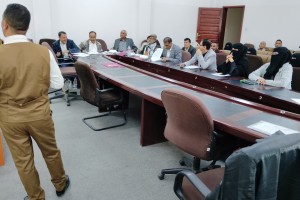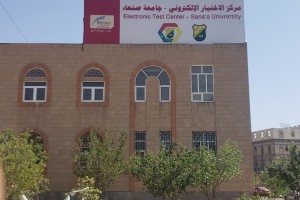Public MA Viva-Voce Examination of Ms. Amany Abdulmalik Lutf
- Posted by كلية اللغات جامعة الصنع
- Categories news
- Date February 9, 2025

The Public Viva-Voce Examination for the MA Thesis hereto entitled, The Impact of Intricacies on Simultaneous Interpreting: A Case Study of Some Selected Interpretation Video Clips and Sessions submitted by Ms. Amany Abdulmalik Mohammed Lutf, Department of English, Faculty of Languages, was held on Thursday, 11/06/1446 Hijri corresponding to 12/12/2025. The Viva-Voce Committee, which was formed based on a resolution issued by the Post-Graduate Studies and Scientific Research Council, consisted of the following:
| # | Committee Members | Designation | University | Position |
| 1 | Assoc. Prof. Bushra Nasser Ahmed Al-Musauba | External Examiner | Haja University | Chair |
| 2 | Assoc. Prof. Mohammed Ahmed Sharafuddin | Main supervisor | Sana’a University | Member |
| 3 | Dr. Abdulwadood Ahmed Annuzaili | Internal examiner | Sana’a University | Member |
The study aimed to
- Investigate the impact of intricacies on SI.
- Demonstrate how omission, substitution, addition and false fluency influence the loss or gain of certain elements as shown in some selected interpretation video clips and sessions.
- Explore the strategies that can be used to reduce problems during the SI performance.
The study concluded with a number of findings, including
The research indicates that omission-type errors are the predominant form of error in interpretation, with substitution, addition, and false fluency errors, respectively. These errors can have diverse effects on the intended message, which emphasizes the importance of accurately assessing and prioritizing them.
The researcher made several recommendations, including
This research can have in-class applications. The trainers can focus on a specific type of error that occurs more frequently and seek to teach certain strategies to prevent the frequent occurrence of such errors. It can help prepare the ground for modifications in curricula for interpreters’ training programs at undergraduate levels and give material developers new insights on textbooks and other class materials. The current task now is to raise trainees’ awareness and pinpoint potential applications for interpreter education and professional practice. Certain examples of the corpus integrated into interpreting curricula already provide engaging methods to enhance trainees’ awareness of collocations, phraseological units, terminological preparation, and language-specific characteristics. The researcher proposes an application that can automatically interpret using Artificial Intelligence (AI) technology alongside human interpreters.
The MA thesis has been examined and is recommended by the Viva-Voce Committee for acceptance and approval. The Candidate was recommended to be awarded the degree of MA majoring in Translation with an overall grade of 95% Excellent with honors.
The viva was attended by academics, researchers, students, and other interested individuals, including the researcher’s colleagues and family members.
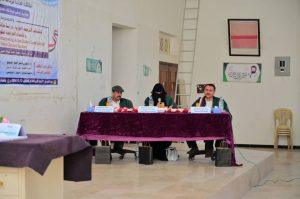
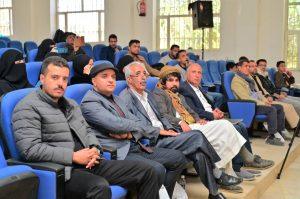
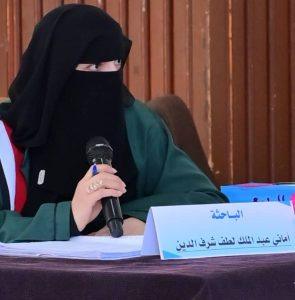
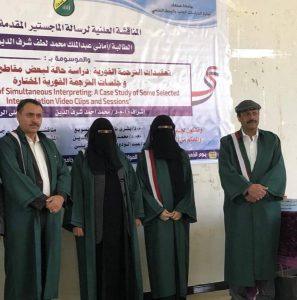
A recorded part of the Viv-Voce session
Previous post
Announcement of a Seminar for the Master's Thesis Proposal of Ms. Bushra Al-Ameen Yaseen Mohammed
You may also like
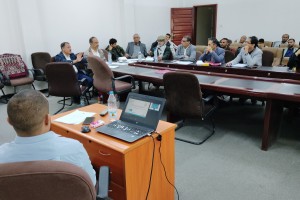
Master’s Thesis Proposal Seminar for Mr. Jehad Mohsen Ahmed Salman
